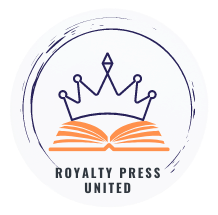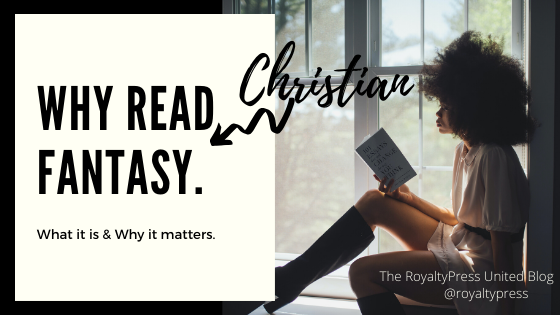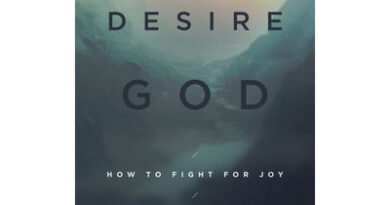Why Read Christian Fantasy
Reading is essential for the intellectual development of children. When we think of this we often think only in the context of language. But storytelling is a key tool in shaping the narrative of our lives. Just look at how art and story telling has been subtly and effectively changing our narratives of living, whether positively or negatively. Where do genres like fantasy and science fiction, fit within this context? And more so what makes it Christian?
What makes it Christian?
In 1950, C.S Lewis debuted his successful series the Chronicles of Narnia. His work demonstrated the power of imagination, and an innovative way of exploring faith based themes in the most captivating way. Talking animals, dancing trees, a magical wardrobe and a powerful lion who presides over it all. Who would have thought these could be used to demonstrate the work of Jesus Christ. People all over the world read those books and it’s now a major motion picture.
But what made Lewis’ work really stand out, was not just the world he was able to craft, but the message he was able to present. And that is what defines christian fantasy. Some argue that Christian fantasy can simply mean that the author is themselves Christian. But the majority I think, can agree that it’s goes beyond what a person might call themselves but what that person’s work points to… or rather who.
A word of caution to writers and readers
The fantastical and fictional, however can also be used to turn ones attention away from biblical themes. And that is why I think the distinction is necessary. In recent times old science fiction stories have resurfaced as well, recreated with our modern technology and aimed towards a more mature audience. The goal being, that the sense of nostalgia when watching their childhood super heroes would cause people to overlook the deeper themes that are really being promoted, which if made glaringly obvious might not be easily accepted.
Among anti-christian themes such as idolatry and immorality also emerged the villainization of the faithful, the moral; the simple man who puts his trust not in his own super human abilities but in a power greater than himself. While making the immoral into the hero, the persecuted and the misunderstood. It is such presentations that we must resist. In addition to this approach, story telling has served as a creative way of presenting human nature as it truly is, revealing our flaws, strengths and desires in ways that forces us to look into the mirrors of art. But if you write from a christian world view, I am uncertain of how you can present those reflections without vibrant etchings of the necessity of God in the life of humankind.
Stories can develop our minds intellectually, it can teach us and those we care for to see the potential in themselves, to stir up faith in God, or distrust, or hatred or disbelief. It can change the narrative of our lives right without any fanfare, without drawing the attention of those around us. Thus leaving moral decay undetectable until it’s behavioral fruits appear. That is the power of the written word, that is the power of the media. Interestingly enough, our ultimate guide for all tenets of religion, Christianity included, is based on the written word. There is an immortality to it, a power to it. And we have somehow learned to harness that power ourselves through our God-given image, leading us to create and craft through the written word as well.
The Christian response to the arts
So how are we as followers of Christ to respond to this? The truth is, according to Cindy Jacobs, we fail as believers if we withdraw ourselves from these creative spheres. Or compromise in our presentation of truth. Not because we feel it does not concern us, but because we are afraid. When we shouldn’t be. God has given us everything we need for life and godliness.
‘God created creativity! That might sound unusual to you, but it’s true: God is the master artist, and all creative talent and inspiration flows from Him. Unfortunately, the church has withdrawn (for the most part) from the arts and entertainment arenas’. – Cindy Jacobs
And this is why I write. I want to help restore the narrative of faith, love, friendship, true righteousness against true evil and not a version of good against a version of evil. I know how impacting stories have been in my life. The thing is you can never truly tell how a story will impact your child. I remember how the story ‘The ugly duckling’ resonated with me as a child. It was the first book I learned to read on my own outside of school. And even as a child it shaped the way I saw myself. I learned that it didn’t matter what the mirror showed, or what others thought about me, it was about how I interpreted that image, it was about what was on the inside. Would you think that a child as young as five, could have such depth of self revelation? I did not know what self esteem was then, but I understood it. Well that’s how powerful a story is. And that is why I write.
From the time I learned to read, I started to write, crafting words with the limited words I knew. And that is why I stepped out of my comfort zone as a writer and wrote and published the Gemstone Royals series, a fantasy novel series. I know that there are countless stories out there to be read, yet I chose to add my voice and if you have a story to tell, you should to. My hope is that readers will not only learn to identify the narrative beneath the fantasy world for themselves, but that they will also become aware of themselves and their need for a savior.
Be a blessing,
KellyP
Check out the Gemstone Royals series on Amazon.

Kelly is the founder of Royalty Press United. Author of the Gemstone Royals fantasy series, Twist of Faith and Crossroads. Counseling psychologist, proud Grenadian and devoted follower of Christ.







You must be logged in to post a comment.